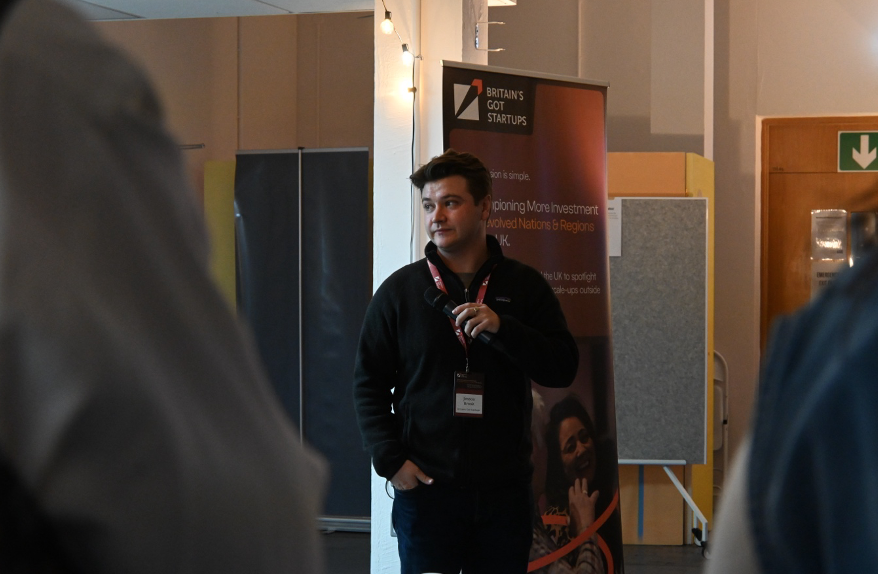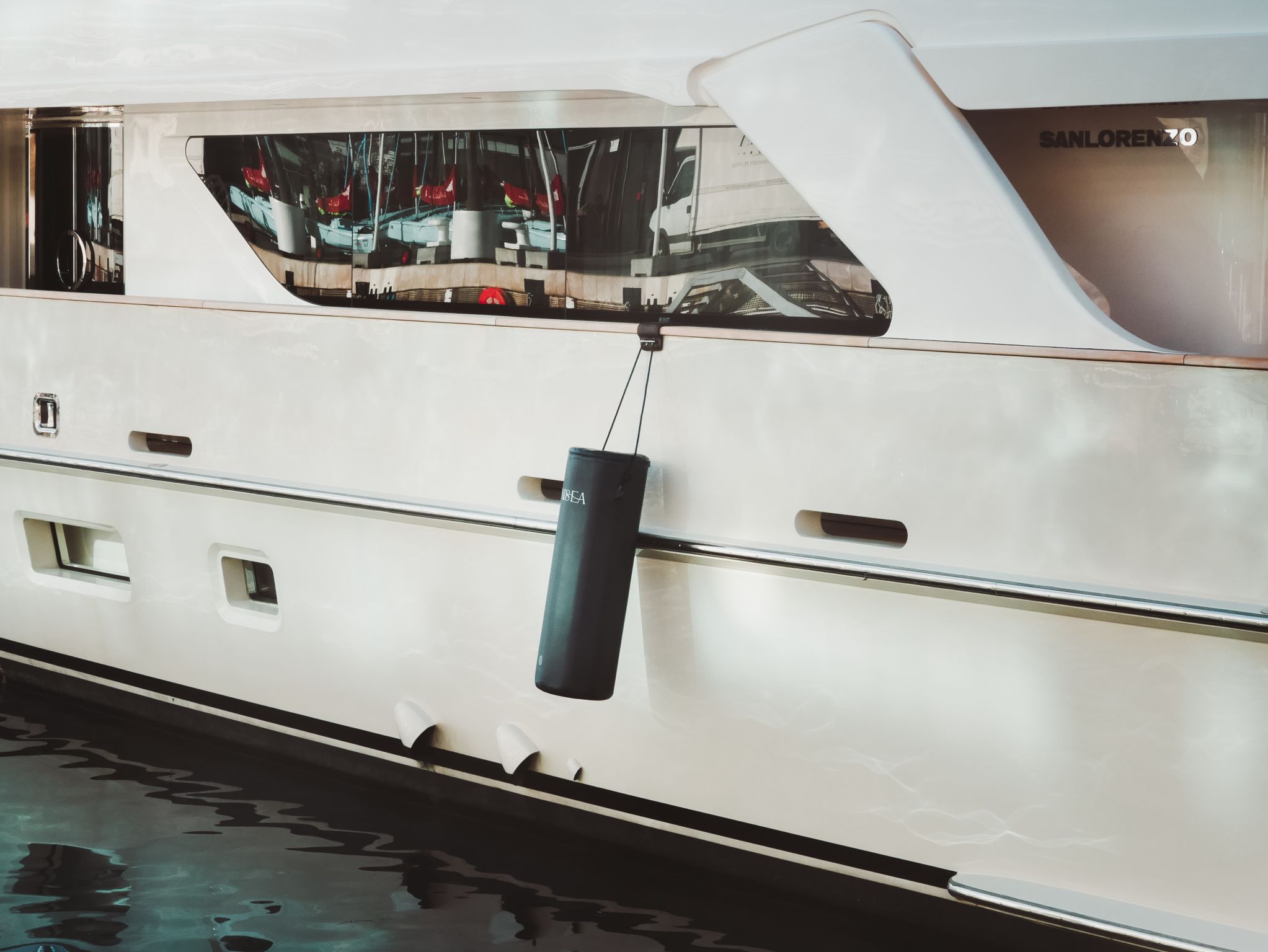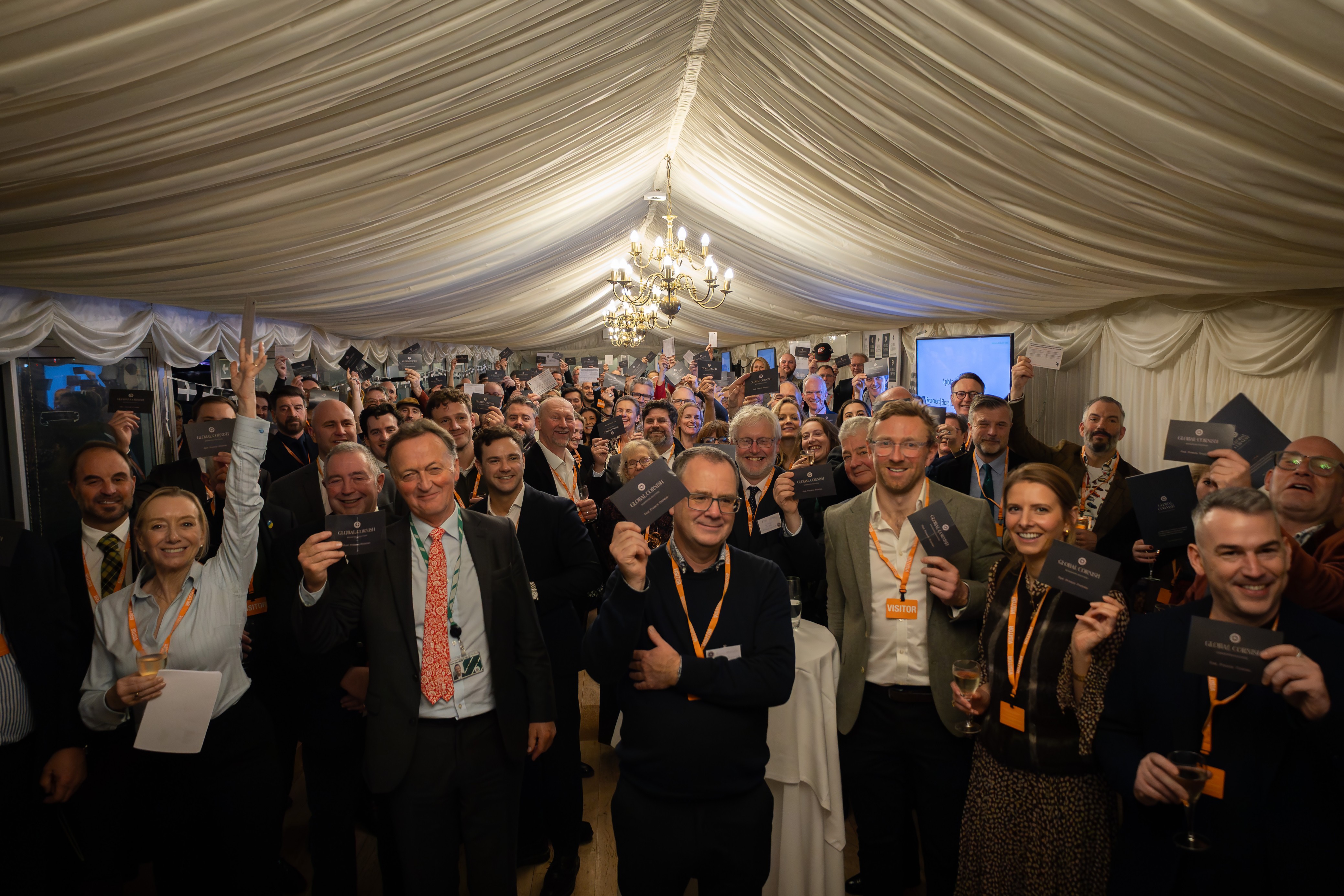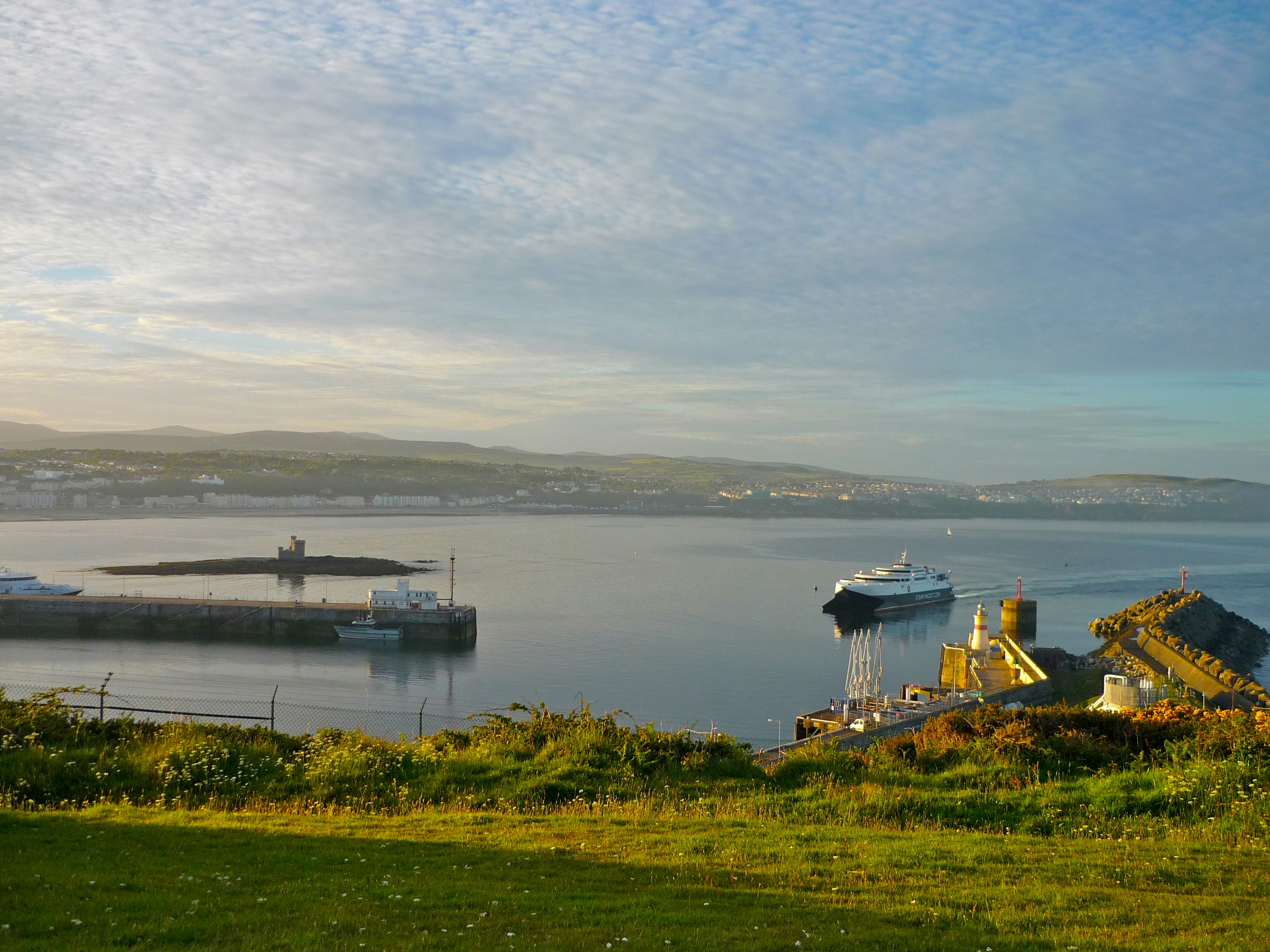
Recap of the Interceltic Business Forum 2025 in Cornwall - brought together entrepreneurs, diaspora leaders, and innovators from Celtic nations to spark global collaboration.
The Interceltic Business Forum 2025 was more than just an event — it was a catalyst.
It became the vehicle that brought an eclectic, ambitious group together: entrepreneurs, investors, policymakers, innovators, and cultural leaders, all connected by Celtic heritage and a shared vision for the future.
Across panels, keynotes, workshops, and informal conversations, the Forum created space for real exchange — not just about challenges, but about shared opportunities for bold growth. From the stunning venue at the National Maritime Museum Cornwall, to the flavorful local food, the live Celtic music, and the deep immersion in culture, every detail was crafted with purpose and pride.
The interceltic Business Forum and the entire Cornwall Trade & Investment team set a new bar for what a business and cultural forum can achieve — authentic, dynamic, and deeply connective.
As John O’Loughlin, Head of Trade and Investment for the Welsh Government in Ireland, put it:
"One of the best pound-for-pound business and networking events."
Nicola Lloyd, Director of Cornwall Trade & Investment, set the tone perfectly with a heartfelt welcome.
She celebrated a special highlight:
Welcoming so many visitors to Cornwall for the first time — and this time, not for a holiday, but for business.
Nicola spoke about how inspiring it was to see Cornwall increasingly recognised as a serious and exciting place to do business internationally, while proudly retaining its unique cultural identity.
She also looked ahead, noting the momentum building within Cornwall’s business community:
More Cornish businesses are now planning to attend future Interceltic Business Forum events across the Celtic nations — taking Cornwall’s strengths to new international audiences.
Following Nicola’s welcome, Lord John Hutton, Chair of the Cornwall and Isles of Scilly Economic Forum, delivered a keynote titled "The Power of Cornwall."

Charles Kergaravat, founder of Interceltic Business Forum, who set the tone with a message about the profound links between Cornwall and Brittany.
He highlighted the common place names—Lann, Tre, Ker, Penn—and the 80% lexical similarity between Cornish and Breton, underlining how these connections stretch beyond history into today's shared challenges:
Above all, Charles emphasized the power of collaboration among Celtic regions—an energy that flowed throughout the day.
In a landmark announcement, Kingsley Aikins of The Diaspora Institute unveiled Cornwall’s first official Diaspora Strategy 2025–2028. Focused on “unleashing Cornwall’s past, present, and promise for good growth,” this strategy aims to connect Cornish people around the world to new opportunities for investment, innovation, and cultural exchange.
It was a defining moment—positioning Cornwall not just as a region of rich history but as a forward-looking global player.

"There are decades where nothing happens; and there are weeks where decades happen."
– Kingsley Aikins at the Interceltic Business Forum
This powerful line captured the spirit of the morning at the Interceltic Business Forum.
The Diaspora Roundtable brought together some of the most influential figures shaping the future of Celtic business and cultural connections globally.
It wasn’t just a conversation — it was a moment of real alignment, where ambition, experience, and opportunity came together in a way that felt historic.
Moderated by Kingsley Aikins the panel featured:
Together, they explored the transformational power of diaspora — how networks of people connected by heritage, but living around the world, can unlock economic opportunity, amplify cultural influence, and drive innovation back into their homelands.
Highlights included:
This wasn’t a theoretical conversation. It was a call to action:
the Celtic nations already have powerful global networks — now is the time to activate them strategically for sustainable growth and cultural resurgence.
As many participants noted afterward, this roundtable may have been the most impactful Celtic diaspora gathering ever assembled — a defining moment for what’s to come.

One of the day's most strategic discussions was led by Matt Hodson, COO of Celtic Sea Power, a Cornwall-based initiative driving innovation in offshore renewable energy.
Matt began by explaining what Celtic Sea Power is:
A pioneering project based in Cornwall, working to develop floating offshore wind energy projects in the Celtic Sea, while creating long-term economic opportunities across the region.
He outlined the massive opportunity now facing the Celtic regions:
Matt also introduced the Celtic Sea Cluster, a collaborative network of businesses, government bodies, researchers, and innovators from across Cornwall and Wales.
The Cluster’s mission is to unite Celtic regions in building a thriving, competitive offshore energy industry — sharing resources, attracting investment, and maximizing local benefits.
The message was clear:
🔋 By working together, the Celtic nations have a once-in-a-generation chance to lead the world in floating offshore wind, drive sustainable growth, and secure a resilient energy future.
This session perfectly captured the spirit of the Interceltic Business Forum — collaboration rooted in shared heritage, but with eyes firmly on global leadership.
Throughout the day, three standout Cornish startups were showcased:
Each company demonstrated how Cornwall’s business community is building solutions that not only serve local needs but scale internationally.
In a packed masterclass session, Daniel Sawko (CEO, shipshape.vc) and James Campbell (Walmer Group) delivered actionable advice on how to successfully attract investment.
Their insights demystified investor expectations and gave founders clear strategies for navigating UK grants and funding rounds—practical knowledge that’s often rare outside major cities.
Meanwhile, Nikki Davies (Co-CEO, Tech Cornwall) energized the crowd with a presentation on Cornwall’s Slush’D event, showing how the region’s tech ecosystem is punching well above its weight by cultivating global innovation right from its coastal roots.

Christopher Weavill, CEO of Hertzian, shared his heartfelt reflection after the event:
“Far too often, words like ‘collaboration’ are thrown around with little meaning—but not here. At the Interceltic Business Forum, collaboration was genuine, inspiring, and impactful.
I was fortunate to spotlight Hertzian in a Q&A with Charles Kergaravat and share not just our successes, but also our struggles—openly and honestly.
Real collaboration means:
✅ Sharing success stories locally as well as internationally
✅ Being honest about where we struggle
✅ Staying connected and creative
✅ Challenging prejudices
One of the most thought-provoking discussions of the day focused on the intersection of artificial intelligence and language preservation.
The AI and Endangered Celtic Languages Roundtable brought together leading voices:

Tomás Ó Síocháin opened the discussion by asking a critical question:
How can AI either endanger or help save our Celtic languages?
Key points raised during the session:
Údarás na Gaeltachta emphasized its commitment to working not only locally but internationally, helping ensure that Celtic languages play a full and vibrant role in the digital future.
The session was not only about challenges — it was a call for action:
🔹 Invest in AI-driven language technologies
🔹 Share digital resources across Celtic regions
🔹 Train a new generation of bilingual digital innovators
The roundtable made it clear that there is huge potential for cross-border collaboration to protect and grow Celtic languages in the next era of technological change.
Another exciting highlight of the day was the official launch of the Interceltic Startup Challenge 2025!
If you’re a high-potential startup from Ireland, Wales, Scotland, Brittany, the Isle of Man, or Cornwall, this is your opportunity to take your business to the next level — expanding internationally and connecting with the powerful Celtic business network.
The Challenge at a glance:
Applications are now open — don’t miss out!

Beyond Cornwall’s impressive momentum, the Forum also shone a spotlight on the dynamic tech ecosystems emerging in Wales and Brittany.
In Wales, a thriving network of startups, tech hubs, and government support is driving real momentum.
Key Welsh voices at the Forum included:
Their contributions painted a clear picture: Wales is fostering an internationally connected, innovation-driven economy — where entrepreneurship, technology, and cultural identity work hand-in-hand.
Initiatives like Tramsheds Tech continue to build a pipeline of startups capable of competing globally, while maintaining strong local roots.
In Brittany, the region’s entrepreneurial strength was highlighted through impressive companies like Treebal, a sustainable messaging platform, and Famileo, an innovative family communication app bridging generations.
Crucially, this growth is supported by the like Fidal Bretagne, who help these startups navigate international markets, and scale through strategic legal and business guidance.
Across both regions, the roundtable discussions made it clear:
There are enormous opportunities for cross-Celtic collaboration in:
The Celtic nations aren’t just keeping up with the global tech economy — they’re shaping a new future where innovation is rooted in community, identity, and collaboration.

The creative industries were also in focus, with Laura Giles, Managing Director of Screen Cornwall, highlighting Cornwall’s growing role as a hub for film, television, and digital media within the Celtic nations.
She shared how the region is attracting international productions while supporting local talent and promoting Celtic-language storytelling. With its striking landscapes, rich cultural identity, and rapidly expanding screen infrastructure, Cornwall is carving out a distinct space in the global creative economy.
A major milestone ahead: Cornwall will host the Celtic Media Festival, bringing even more industry attention and cultural exchange to the region. It’s a powerful moment for Cornwall’s screen sector — and a reflection of the wider Celtic revival unfolding across business, culture, and innovation.
The Interceltic Business Forum 2025 proved that when Celtic regions come together — proudly rooted in heritage but boldly looking forward — incredible things happen.
A huge thank you to all the speakers, attendees, partners, and organizers who made this event possible — and who showed that the Celtic spirit of resilience, creativity, and cooperation is more powerful than ever.
This is only the beginning.
We can't wait to see everyone again in Lorient on August 4th, 2025, for the next Interceltic Business Forum!
Lorient, France, August 4th. Let’s continue building the future together.

Jenson Brook, founder of Novus Capital, shares his approach to supporting innovative startups and expanding access to funding beyond London.
Read More
La startup lorientaise Fendsea entre dans une nouvelle phase de croissance, portée par son développement commercial et son expansion internationale.
Read More
On 15 December, we officially launched Global Cornish at Westminster, bringing together nearly 200 Cornish diaspora from business, politics, culture, and sport.
Read More
Dirigeants bretons, développez votre réseau interceltique. Découvrez pourquoi et comment participer à l’Interceltic Business Forum 2026 à l’Île de Man.
Read More